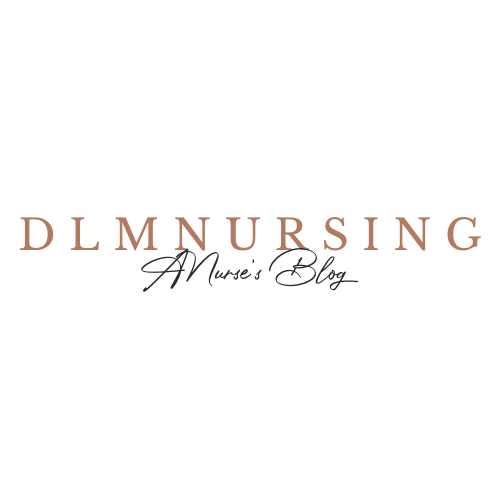Millennial Nurses: Leveraging Leadership to Take Charge
Millennial nursing is a term used to describe the current generation of nurses, which includes those born in the early 1980s to the mid-1990s. Millennial nurses are often characterized as being tech savvy and open minded when it comes to new ideas or technologies. They are also known for their strong commitment towards patient care and advocacy. However, this generation faces several unique challenges related to leadership roles within healthcare organizations. These include an increased workload due to staffing shortages, lack of access to formal education opportunities, limited resources for professional development, outdated technology systems, and difficulty adapting to changing policies or regulations. As such, millennial nurses must be especially adept at developing their leadership skills in order to take charge and lead effectively in their respective roles.
The Characteristics of a Great Millennial Nurse Leader
Great millennial nurse leaders are characterized by strong communication skills, both verbal and written. They must be able to effectively communicate with their colleagues, patients and families in order to provide the best possible care. Additionally, they should possess emotional intelligence which will help them better understand patient needs and expectations. Furthermore, a great millennial nurse leader is one who can think innovatively when it comes to providing solutions or finding ways to make processes more efficient. This includes being open about new technologies or approaches that could benefit the organization as a whole. Finally, these leaders should be adaptable in order to respond quickly and appropriately when changes arise within the healthcare environment.
Moreover, an important characteristic of great millennial nurse leaders is their ability to foster an encouraging and supportive team environment through positive reinforcement of staff members’ hard work and dedication towards patient care. Acknowledging individual contributions helps create a collaborative atmosphere where everyone feels appreciated for their efforts while also inspiring those around them strive for excellence in all areas of nursing practice.
Developing Leadership Skills
Developing leadership skills is essential for millennial nurses who want to become great leaders in their field. One way to begin developing these skills is by obtaining formal education such as a bachelor’s or master’s degree in nursing, health administration, or business. Such educational programs provide the necessary foundation and knowledge base needed for successful leadership roles within healthcare organizations.
Another important step towards becoming an effective leader is to shadow other experienced nurse leaders; this will allow millennials to observe firsthand how those individuals lead teams and handle various situations that arise on a daily basis. Furthermore, networking opportunities should be taken advantage of whenever possible so as to build relationships with peers from different healthcare backgrounds and gain valuable insight into industry practices.
Finally, continuing professional development is key when it comes to staying current with trends and advancements within the medical field. This can include attending conferences or workshops related to management topics such as patient safety initiatives or quality improvement strategies; reading relevant publications; and engaging with online resources like webinars which offer further guidance on particular areas of expertise desired by aspiring nurse leaders. By taking all these steps together, millennial nurses can ensure they are prepared for any challenges that come their way while leading teams now and in the future
Overcoming Challenges
When it comes to overcoming challenges in the workplace, one of the most important skills that a millennial nurse leader must possess is how to effectively manage conflict. This means having the ability to identify and address disagreements between staff members while still maintaining a professional attitude. To do so, nurses should strive to be understanding of different perspectives, use active listening techniques such as repeating what others have said or summarizing their points succinctly, and offer solutions that are both reasonable and respectful.
Another challenge faced by millennial nurse leaders is managing stress levels within their teams. While this can be difficult at times due to the high pressure environment of healthcare organizations, there are several strategies which can help reduce anxiety and boost morale among employees. These include providing regular feedback on performance; encouraging team members to take breaks when needed; offering resources such as counseling services for those struggling with burnout or mental health issues; recognizing accomplishments through rewards or recognition programs; and addressing any conflicts quickly before they become more serious problems.
Finally, making difficult decisions is an essential part of leading a team successfully in nursing practice today. Millennial nurse leaders need to be able to assess risks versus benefits accurately while also taking into consideration patient safety protocols as well as ethical considerations involved in certain medical procedures or treatments. Additionally, they should consult with other professionals on their teams when necessary in order for all voices within an organization’s care structure are heard before making final decisions which will affect everyone involved directly or indirectly.
Prioritizing Self-Care
Prioritizing self-care is essential for millennial nurse leaders to remain resilient and successful in their roles. Creating a supportive environment at work is the first step towards achieving this goal, as it provides an opportunity for colleagues to share their experiences and challenges with each other while also offering encouragement during difficult times. Building relationships of trust within teams can foster an atmosphere where everyone feels comfortable discussing issues openly and honestly without fear of judgment or criticism. Additionally, seeking guidance from experienced mentors or supervisors can help younger nurses navigate through tricky situations they may not have encountered before.
Practicing self-care techniques on a regular basis is another important component when it comes to prioritizing well-being amongst millennials in nursing leadership positions. Strategies such as setting realistic goals, taking breaks throughout the day, and engaging in activities that bring joy can all be beneficial when stress levels become too high. Additionally, writing down thoughts or feelings in a journal helps provide clarity on any personal struggles one might be facing; this allows individuals to process their emotions more effectively so they are better equipped to handle challenging scenarios moving forward.
Finally, seeking professional help should always be considered if problems persist despite attempting various strategies previously mentioned. It is important that nurse leaders recognize when additional support from outside sources may be necessary; doing so shows courage and strength rather than weakness or defeatism which could ultimately hinder one’s ability to perform optimally both personally and professionally over time. Furthermore, seeking out counseling services or therapy sessions offers an individualized approach tailored specifically towards meeting individual needs thus allowing for greater understanding between patient/client care providers overall which leads to improved outcomes for those being served by healthcare organizations across the country today
Promoting Innovation
In order to promote innovation in the healthcare industry, millennial nurse leaders must be open to embracing new ideas and changes. This includes encouraging staff members to think outside of the box when it comes to providing solutions or finding ways to make processes more efficient. Additionally, they should take advantage of any available resources such as attending seminars or conferences that focus on innovative approaches within healthcare delivery; reading research-based publications which discuss current trends and best practices; and engaging with online platforms like webinars which provide further guidance on particular topics desired by aspiring nurse leaders.
Moreover, adopting new technologies is an integral part of promoting innovation amongst millennials in nursing leadership positions today. By using digital tools such as patient engagement apps or electronic health records (EHRs), nurses can better monitor patient progress while also streamlining workflows within their organizations for improved efficiency overall. Furthermore, utilizing artificial intelligence (AI) systems can help improve accuracy when it comes to diagnostics while simultaneously reducing human error thus ensuring quality care is provided every time without fail.
Finally, partnering with other organizations is a great way for hospitals and clinics alike to share knowledge and resources regarding advances in technology while also learning from one another’s successes and failures along the way. Such collaborations allow for increased access points where patients receive comprehensive services that meet all their needs no matter how complex they may be; not only does this create a positive environment overall but it also helps cut costs associated with unnecessary treatments or procedures due these partnerships being able to identify potential areas of improvement beforehand rather than after implementation has already taken place making them invaluable assets going forward into the future both professionally personally speaking
Conclusion
In conclusion, millennial nurse leaders are essential to the success of healthcare organizations today. By embracing their unique qualities such as an open-minded approach to problem solving and a willingness to embrace new technologies, they can help create positive change in the industry which will benefit both patients and providers alike. Additionally, staying mindful of self-care practices is important for any leader so that they remain resilient during tough times while also leading their teams with confidence. Finally, continual learning should be encouraged amongst millennials so that they stay informed on relevant topics related to patient safety initiatives or quality improvement strategies; this will ensure excellence in nursing care delivery now and into the future.





